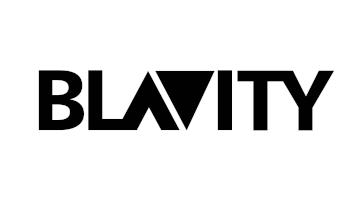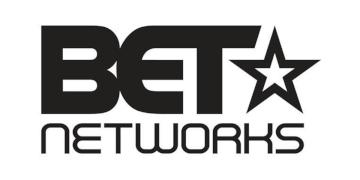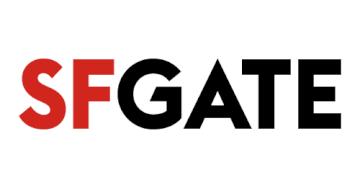- Paid Partnerships with Allstate Insurance
- Featured on NBC, MSNBC, Huffington Post, and Newsweek, among others
- Created two viral videos about housing (400k+ views combined)
- Investors include Ben Franklin Tech Partners and CorLyst Group
- 190,000+ users registered on WYL platform, and 115,000+ blog visits
- Raise Description: Seed
- Minimum Investment: US $500 per investor
- Security Type: Preferred Equity
- Pre-Money Valuation: US $2,300,000
- Offering Type: Side by Side Offering
Empowering & Informing The Millennial Renter.
** WhoseYourLandlord is presenting in SeedInvest’s October Digital Demo Day on October 12th at 2 PM EST. To register, please go to this link: https://attendee.gotowebinar.com/register/3583639733461106434
We believe renters have become bad consumers and lack the means and tools necessary to ensure a fair and quality living experience. Our mission is to empower and inform the growing rental community. A third of millennials still live at home with their parents and the homeownership rate amongst those under 35 has dropped 7% over the last decade. As a matter of fact, more than 36% of the U.S. currently rents their home or apartment (and 65% of those who are 35 and younger). If renting into perpetuity is the new standard, we need to prepare ourselves going forward. If we’re required to give up our credit reports, background checks, living history, and bank information, perhaps it’s time we do better due diligence on the people we’re renting from and pool together our communication and organized efforts with other renters on a platform built for us.
PITCH DECK
Product & Service
Problem
Over the last decade, the homeownership rate is down 7% amongst folks aged 18 – 34 and it’s down another 9% amongst folks aged 35 – 44. The idea of buying a home and moving to the suburbs is not the world we live in today. In some markets, high rents and weak millennial incomes make it increasingly difficult to raise a down payment. If this is the new way of living, we’ve got to be prepared for it. We spend tons of our time looking at movie reviews before we click on a Netflix film to watch. We spend tons of our time scouring reviews to determine the best restaurants in the neighborhood. Then: why don’t we look at the reviews of our home providers – landlords, property managers, and apartment buildings – before we decide where we’re going to call home?
Solution
Through the power of transparency and access to information, we’re going to organize a strong community of renters by providing landlord reviews, neighborhood engagement, community insights, and helpful resources. By organizing and empowering renters, we are bringing quality and humanity to the residential space.
Revenue Streams:
- Paid Partnerships: Companies like Allstate (renters’ insurance), Roadway Moving, DOZE Beds, etc. want to get in front of our user base through our content videos, blog posts, newsletter, and on site banner inclusions.
- Landlords Posting Listings: As WYL expands, we plan to charge market rate subscription pricing for home providers to post their available listings on the platform.
- Credit Reporting: Through our partnership with TransUnion, renters can request their credit report, background check, and eviction history. We split revenue with TransUnion.
- Merchandise: People can snag our backpacks, T-shirts, and Tanks online. Our brand ambassadors/influencers have helped make this a real thing.




WYL Homepage.
Media Mentions
























Team Story
In 2013, our CEO Ofo Ezeugwu was the VP of the student body at Temple University. He was already an active entrepreneur and had co-founded a brand development firm with his best friend of 17 years, Felix Addison. While serving as VP, Ofo listened to many students who were stressing about how lousy their rental experiences were, due to the abundance of “shady” landlords in the North Philly area. In an effort to solve their issues, Ofo thought: “what if renters could review their landlords? That way, they’d know what to expect before signing the lease.” The idea was one that resonated with students and so Ofo reached out to Felix Addison, COO, and Nik Korablin, CTO, to begin building a beta version which would transform and grow to become WYL.
The WYL co-founders are a relentless group. Their first-generation immigrant backgrounds assist in making them this way. They live amongst the communities they’re working to serve, and their youth and willingness to learn allows them to be the ideal messengers for WYL’s message.
Founders and Officers
Ofo Ezeugwu
CEO
Ofo Ezeugwu is a serial entrepreneur who’s been invited to speak at the White House, Columbia, Harvard, Princeton, Wharton, and more. He’s been featured on the Today Show seven times and his work’s been featured in TechCrunch, Newsweek, The Philadelphia Inquirer, MSNBC, among other publications. During Ofo’s senior year at Temple University he was the VP of the student body and was confronted by the issues students were having in a rapidly gentrifying area (with little knowledge of how to navigate the rental process). He told them he’d solve the problem and spearheaded the creation of a beta version of a rating platform for landlords which evolved to later become WYL.
Nik Korablin
CTO
Nik is the CTO of WhoseYourLandlord.com. He is interested in front-end technology, specifically JS frameworks. He has worked for small firms in web development as well as a full stack Java developer at Vanguard.
Felix Addison
COO
Felix Addison is a serial entrepreneur, problem solver, creator, and proud member of the DreamWakers Advisory council.
Notable Advisors & Investors

Lee Shlamowitz
Advisor, Attorney, LMS Legal

Eric Shashoua
Advisor, Co-Founder, Zive

Nick Bayer
Advisor, CEO and Founder, Saxbys
Q&A with the Founder
Could you tell us more about your user metrics?Sure, we have over 250,000 users who visit our website and blog looking for reviews, listings, and engagement. About 75,000 of those are on the blog, and engage with its video content. We have had over 60,000 searches in the last 4 months. We have about 8,000 apartment reviews mostly in Philadelphia, Brooklyn, and Washington DC. Seventy-five percent of all our users are millennials who are 25-year-old on average, and we have seen a growth of about 25% MoM growth in the user base historically. The largest number of our users reside in our pilot cities Philadelphia (80,000) and Brooklyn, NY (50,000), and we have users from over 180 cities.
What is your plan for revenue generation in the future?We hope to generate revenue via the following three avenues: Partnerships – We currently generate revenue through paid sponsorships with companies like Allstate, Roadway Moving, and Dominion Enterprises, and will continue to add partners looking to reach out to partners in the future. Credit Checks – Additionally, we are integrating a partnership with TransUnion which will charge renters a fee of $30 for their credit report, background check, and eviction history – we will split the revenue with TransUnion. It has been contracted and integrated now; will be launching this Fall as an ancillary service. Every booking using credit information will result in revenue share for both parties. Community Fee – WYL will charge a nominal community member fee to renters to have full access to all community insight and landlord reviews provided. The small fee of $10/month will not be for searches (which are free), but for more insights and legal questions on neighborhoods and to hear back from our forum and/or actual residents. We will begin testing in Philadelphia and target a launch Q2 2018.
Could you give us a break out of your revenues (~$34,000) to date?All of our revenue till date has come from Partnerships. In 2017, we received ~$24,000 from Allstate for blogs and content to reach out to our millennial customer base for them. Similarly, in 2016, we received ~$10,000 from Dominion Rental, Moving Co., and Allstate for content creation.
Why are revenues so staggered on “Services”?Currently, the partnerships have been on a one-off basis but Allstate has expanded the relationship a few times and found WYL on their own. In the future, we would like to expand to annual contracts and expect that as long as our user base and data base grows, we would be able to have continual partnerships.
What do you see as possible exit opportunities?We believe the ideal exit opportunity would come in about two years, and we might be acquired by an apartment or home market search listing company.
Side by Side Term Sheet
A Side by Side offering refers to a deal that is raising capital under two offering types. If you plan on investing less than US $20,000.00, you will automatically invest under the Regulation CF offering type. If you invest more than US $20,000.00, you must be an accredited investor and invest under the Regulation D offering type.
| TERMS & DESCRIPTION | REGULATION D – RULE 506(C) | REGULATION CF |
|---|---|---|
| Investor Types | Accredited Only | Accredited and Non-accredited |
| Round description | Seed | Seed |
| Round size | US $250,000 | US $250,000 |
| Amount raised | US $0 | US $7,970 |
| Minimum investment | $20,000 | US $500 |
| Target minimum | US $125,000 | US $125,000 |
| Closing Conditions | The Company is making concurrent offerings under both Regulation CF and Regulation D (the “Combined Offerings”). Unless the Company raises at least the Target Amount of $25,000 under the Regulation CF offering and a total of $125,000 under the Combined Offerings (the “Closing Amount”) by the offering end date no securities will be sold in this offering, investment commitments will be cancelled, and committed funds will be returned. | The Company is making concurrent offerings under both Regulation CF and Regulation D (the “Combined Offerings”). Unless the Company raises at least the Target Amount of $25,000 under the Regulation CF offering and a total of $125,000 under the Combined Offerings (the “Closing Amount”) by the offering end date no securities will be sold in this offering, investment commitments will be cancelled, and committed funds will be returned. |
| Investment Management Agreement | All non-Major Purchasers will be subject to an Investment Management Agreement (“IMA”). The IMA will authorize an investment Manager to act as representative for each non-Major Purchaser and take certain actions for their benefit and on their behalf. Please see a copy of the IMA included with the Company’s offering materials for additional details. | All non-Major Purchasers will be subject to an Investment Management Agreement (“IMA”). The IMA will authorize an investment Manager to act as representative for each non-Major Purchaser and take certain actions for their benefit and on their behalf. Please see a copy of the IMA included with the Company’s offering materials for additional details. |
Use of Proceeds
Investor Perks
$500: Much Appreciated
Receive a WYL T-shirt.
$1,000: All Love
Receive a WYL swag bag (bookbag) with crewneck, t-shirt, and pins.
$2,500: Light Work
Receive a photoshoot with WYL and get your set of photos displayed on the homepage for 1 month. Photos may be used throughout the WYL blog, too. Receive the aforementioned perks, as well.
$10,000: You’re a G
Mixing in some accent pieces with your current furniture, WYL will reimagine and redesign your apartment giving it a cool, chic, warm feel. Get your newly swagged out spot featured in WYL’s online web content series.
$50,000: Boss
The WYL Team will spend a full day working with your charity of choice. WYL will also feature a donate button on the homepage for a month, encouraging our community to interact with and learn more about your charitable organization.
It is advised that you consult a tax professional to fully understand any potential tax implications of receiving investor perks before making an investment.
Prior Rounds
The graph below illustrates the valuation cap or the pre-money valuation of WhoseYourLandlord’s prior rounds by year.
DreamIt Ventures Accelerator
Round SizeUS $25,000
Close DateJun 8, 2015
Security TypePreferred Equity
Pre-money ValuationUS $0
Financial Discussion
Please see the financial information listed on the cover page of the Form C and attached hereto in addition to the following information. Financial statements are attached to the Form C as Exhibit B, and provided in the data room below.
Operations
Whoseyourlandlord, Inc. (the “Company”), is a corporation organized April 8, 2015 under the laws of Delaware. The Company brings quality to the rental experience through landlord reviews, community insights, neighborhood engagement, and real-time available listings. Whoseyourlandlord, LLC (the “Predecessor Company”), is a limited liability company organized September 6, 2013 under the laws of New York under common ownership and control as the Company. In April 2015, the Predecessor Company merged with the Company in a merger transaction effective April 8, 2015, whereby the owners of the Predecessor Company agreed to exchange their interests in the Predecessor Company for 1,250,797 shares of the Company’s common stock and terminate the Predecessor Company.
The Company has not generated profits, has limited revenues to date, has sustained net losses of $215,815 and $31,815 during the years ended December 31, 2016 and 2015, respectively, has an accumulated deficit of $247,630 as of December 31, 2016, current liabilities exceed current assets by $205,735 as of December 31, 2016, and has limited liquidity to satisfy is ongoing operating needs with just $7,426 of cash as of December 31, 2016. The Company has recognized revenue from advertising services from one customer for the years ended December 31, 2016 and 2015 totaling $9,997 and $19,997, respectively, representing a concentration of revenues.
Liquidity and Capital Resources
The Company’s ability to continue as a going concern in the next twelve months following the date the consolidated financial statements were available to be issued is dependent upon its ability to obtain capital financing from investors sufficient to meet current and future obligations and deploy such capital to produce profitable operating results. Management has evaluated these conditions and plans to generate revenues and raise capital from outside investors to satisfy its capital needs. The Company is planning on filing securities offerings under Regulation CF to address liquidity issues.
No assurance can be given that the Company will be successful in these efforts. These factors, among others, raise substantial doubt about the ability of the Company to continue as a going concern for a reasonable period of time. The consolidated financial statements do not include any adjustments relating to the recoverability and classification of recorded asset amounts or the amounts and classification of liabilities that might be necessary should the Company be unable to continue as a going concern.
The Company does not currently have additional sources of capital.
Capital Expenditures and Other Obligations
Effective December 16, 2015, the Company extended a previously signed lease agreement for office space dated June 15, 2015. The lease term commenced December 16, 2015 and expired on June 30, 2016, with required monthly lease payments of $600. The Company was on a month-to-month lease agreement for the remainder of 2016. Rent expense for the years ended December 31, 2016 and 2015 totaled $7,400 and $5,000, respectively.
Material Changes and Other Information Trends and Uncertainties
The Company does not currently believe it is subject to any trends or uncertainties.
After reviewing the above discussion of the steps the Company intends to take, potential Purchasers should consider whether achievement of each step within the estimated time frame is realistic in their judgment. Potential Purchasers should also assess the consequences to the Company of any delays in taking these steps and whether the Company will need additional financing to accomplish them.
The financial statements are an important part of this Form C and should be reviewed in their entirety. The financial statements of the Company are attached to the Form C as Exhibit B.
Valuation
Based on the Offering price of the Securities, the pre-Offering value ascribed to the Company is 2,300,000.
Before making an investment decision, you should carefully consider this valuation and the factors used to reach such valuation. Such valuation may not be accurate and you are encouraged to determine your own independent value of the Company prior to investing.
As discussed in “Dilution” below, the valuation will determine the amount by which the investor’s stake is diluted immediately upon investment. An early-stage company typically sells its shares (or grants options over its shares) to its founders and early employees at a very low cash cost, because they are, in effect, putting their “sweat equity” into the Company. When the Company seeks cash investments from outside investors, like you, the new investors typically pay a much larger sum for their shares than the founders or earlier investors, which means that the cash value of your stake is immediately diluted because each share of the same type is worth the same amount, and you paid more for your shares (or the notes convertible into shares) than earlier investors did for theirs.
There are several ways to value a company, and none of them is perfect and all of them involve a certain amount of guesswork. The same method can produce a different valuation if used by a different person.
Liquidation Value – The amount for which the assets of the Company can be sold, minus the liabilities owed, e.g., the assets of a bakery include the cake mixers, ingredients, baking tins, etc. The liabilities of a bakery include the cost of rent or mortgage on the bakery. However, this value does not reflect the potential value of a business, e.g. the value of the secret recipe. The value for most startups lies in their potential, as many early stage companies do not have many assets (they probably need to raise funds through a securities offering in order to purchase some equipment).
Book Value – This is based on analysis of the Company’s financial statements, usually looking at the Company’s balance sheet as prepared by its accountants. However, the balance sheet only looks at costs (i.e. what was paid for the asset), and does not consider whether the asset has increased in value over time. In addition, some intangible assets, such as patents, trademarks or trade names, are very valuable but are not usually represented at their market value on the balance sheet.
Earnings Approach – This is based on what the investor will pay (the present value) for what the investor expects to obtain in the future (the future return), taking into account inflation, the lost opportunity to participate in other investments, the risk of not receiving the return. However, predictions of the future are uncertain and valuation of future returns is a best guess.
Different methods of valuation produce a different answer as to what your investment is worth. Typically, liquidation value and book value will produce a lower valuation than the earnings approach. However, the earnings approach is also most likely to be risky as it is based on many assumptions about the future, while the liquidation value and book value are much more conservative.
Future investors (including people seeking to acquire the Company) may value the Company differently. They may use a different valuation method, or different assumptions about the Company’s business and its market. Different valuations may mean that the value assigned to your investment changes. It frequently happens that when a large institutional investor such as a venture capitalist makes an investment in a company, it values the Company at a lower price than the initial investors did. If this happens, the value of the investment will go down.
Market Landscape
Risks and Disclosures
The development and commercialization of our service is highly competitive.
We face competition with respect to any products that we may seek to develop or commercialize in the future. Our competitors include major companies worldwide. Many of our competitors may have significantly greater financial, technical and human resources than we have and may have access to superior expertise in research and development and marketing approved services and thus may be better equipped than us to develop and commercialize those services. These competitors also compete with us in recruiting and retaining qualified personnel and acquiring technologies. Smaller or early stage companies may also prove to be significant competitors, particularly through collaborative arrangements with large and established companies. Accordingly, our competitors may commercialize products more rapidly or effectively than we are able to, which would adversely affect our competitive position, the likelihood that our services will achieve initial market acceptance and our ability to generate meaningful additional revenues from our products.
The Company’s success depends on the experience and skill of the board of directors, its executive officers and key employees.
In particular, the Company is dependent on Camellus Ofornedu Ezeugwu Jr., Nikita Korablin, and Felix Addison, who are WhoseYourLandlord, Inc.’s CEO/Co-Founder, CTO/Co-Founder, and COO/Co-Founder, respectively. The Company has or intends to enter into employment agreements with these individuals although there can be no assurance that it will do so or that they will continue to be employed by the Company for a particular period of time. The loss of Camellus Ofornedu Ezeugwu Jr., Nikita Korablin, and Felix Addison, or any member of the board of directors or executive officer could harm the Company’s business, financial condition, cash flow and results of operations.
We have not prepared any audited financial statements.
Therefore, you have no audited financial information regarding the Company’s capitalization or assets or liabilities on which to make your investment decision. If you feel the information provided is insufficient, you should not invest in the Company.
We are not subject to Sarbanes-Oxley regulations and lack the financial controls and safeguards required of public companies.
We do not have the internal infrastructure necessary, and are not required, to complete an attestation about our financial controls that would be required under Section 404 of the Sarbanes-Oxley Act of 2002. There can be no assurance that there are no significant deficiencies or material weaknesses in the quality of our financial controls. We expect to incur additional expenses and diversion of management’s time if and when it becomes necessary to perform the system and process evaluation, testing and remediation required in order to comply with the management certification and auditor attestation requirements.
The Company could be negatively impacted if found to have infringed on intellectual property rights, and it may be unable to protect its intellectual property rights adequately.
Technology companies, including many of the Company’s competitors, frequently enter into litigation based on allegations of patent infringement or other violations of intellectual property rights. In addition, patent holding companies seek to monetize patents they have purchased or otherwise obtained. As the Company grows, the intellectual property rights claims against it will likely increase. The Company intends to vigorously defend infringement actions in court and before the U.S. International Trade Commission. The plaintiffs in these actions frequently seek injunctions and substantial damages. Regardless of the scope or validity of such patents or other intellectual property rights, or the merits of any claims by potential or actual litigants, the Company may have to engage in protracted litigation. If the Company is found to infringe one or more patents or other intellectual property rights, regardless of whether it can develop non-infringing technology, it may be required to pay substantial damages or royalties to a third-party, or it may be subject to a temporary or permanent injunction prohibiting the Company from marketing or selling certain products. In certain cases, the Company may consider the desirability of entering into licensing agreements, although no assurance can be given that such licenses can be obtained on acceptable terms or that litigation will not occur. These licenses may also significantly increase the Company’s operating expenses.
The company currently has no patents on its product. To the extent they do seek patent protection, any U.S. or other patents issued may not be sufficiently broad to protect its proprietary technologies. In addition, patents, even if granted, may be held invalid or unenforceable if challenged. Regardless of the merit of particular claims, litigation may be expensive, time-consuming, disruptive to the Company’s operations and distracting to management. In recognition of these considerations, the Company may enter into arrangements to settle litigation. If one or more legal matters were resolved against the Company’s consolidated financial statements for that reporting period could be materially adversely affected. Further, such an outcome could result in significant compensatory, punitive or trebled monetary damages, disgorgement of revenue or profits, remedial corporate measures or injunctive relief against the Company that could adversely affect its financial condition and results of operations.
We must acquire or develop new products, evolve existing ones, address any defects or errors, and adapt to technology change.
Technical developments, client requirements, programming languages, and industry standards change frequently in our markets. As a result, success in current markets and new markets will depend upon our ability to enhance current products, address any product defects or errors, acquire or develop and introduce new products that meet client needs, keep pace with technology changes, respond to competitive products, and achieve market acceptance. Product development requires substantial investments for research, refinement, and testing. We may not have sufficient resources to make necessary product development investments. We may experience technical or other difficulties that will delay or prevent the successful development, introduction, or implementation of new or enhanced products. We may also experience technical or other difficulties in the integration of acquired technologies into our existing platform and applications. Inability to introduce or implement new or enhanced products in a timely manner could result in loss of market share if competitors are able to provide solutions to meet customer needs before we do, give rise to unanticipated expenses related to further development or modification of acquired technologies as a result of integration issues, and adversely affect future performance.
Industry consolidation may result in increased competition, which could result in a loss of customers or a reduction in revenue.
Some of our competitors have made or may make acquisitions or may enter into partnerships or other strategic relationships to offer more comprehensive services than they individually had offered or achieve greater economies of scale. In addition, new entrants not currently considered to be competitors may enter our market through acquisitions, partnerships or strategic relationships. We expect these trends to continue as companies attempt to strengthen or maintain their market positions. The potential entrants may have competitive advantages over us, such as greater name recognition, longer operating histories, more varied services and larger marketing budgets, as well as greater financial, technical and other resources. The companies resulting from combinations or that expand or vertically integrate their business to include the market that we address may create more compelling service offerings and may offer greater pricing flexibility than we can or may engage in business practices that make it more difficult for us to compete effectively, including on the basis of price, sales and marketing programs, technology or service functionality. These pressures could result in a substantial loss of our customers or a reduction in our revenue.
Apartment listing products are commoditized and offer low differentiation to market players.
The Company may be unable to maintain, promote, and grow its brand through marketing and communications strategies. It may prove difficult for the Company to establish itself as a well-known brand in the competitive listing space, and the product may be in a market where customers will not have brand loyalty. If competitors develop equal products, the Company may be forced to compete on a pricing basis, which could negatively affect its revenue.
General Risks and Disclosures
Start-up investing is risky. Investing in startups is very risky, highly speculative, and should not be made by anyone who cannot afford to lose their entire investment. Unlike an investment in a mature business where there is a track record of revenue and income, the success of a startup or early-stage venture often relies on the development of a new product or service that may or may not find a market. Before investing, you should carefully consider the specific risks and disclosures related to both this offering type and the company which can be found in this company profile and the documents in the data room below.
Your shares are not easily transferable. You should not plan on being able to readily transfer and/or resell your security. Currently there is no market or liquidity for these shares and the company does not have any plans to list these shares on an exchange or other secondary market. At some point the company may choose to do so, but until then you should plan to hold your investment for a significant period of time before a “liquidation event” occurs. A “liquidation event” is when the company either lists their shares on an exchange, is acquired, or goes bankrupt.
The Company may not pay dividends for the foreseeable future. Unless otherwise specified in the offering documents and subject to state law, you are not entitled to receive any dividends on your interest in the Company. Accordingly, any potential investor who anticipates the need for current dividends or income from an investment should not purchase any of the securities offered on the Site.
Valuation and capitalization. Unlike listed companies that are valued publicly through market-driven stock prices, the valuation of private companies, especially startups, is difficult to assess and you may risk overpaying for your investment. In addition, there may be additional classes of equity with rights that are superior to the class of equity being sold.
You may only receive limited disclosure. While the company must disclose certain information, since the company is at an early-stage they may only be able to provide limited information about its business plan and operations because it does not have fully developed operations or a long history. The company may also only obligated to file information periodically regarding its business, including financial statements. A publicly listed company, in contrast, is required to file annual and quarterly reports and promptly disclose certain events — through continuing disclosure that you can use to evaluate the status of your investment.
Investment in personnel. An early-stage investment is also an investment in the entrepreneur or management of the company. Being able to execute on the business plan is often an important factor in whether the business is viable and successful. You should be aware that a portion of your investment may fund the compensation of the company’s employees, including its management. You should carefully review any disclosure regarding the company’s use of proceeds.
Possibility of fraud. In light of the relative ease with which early-stage companies can raise funds, it may be the case that certain opportunities turn out to be money-losing fraudulent schemes. As with other investments, there is no guarantee that investments will be immune from fraud.
Lack of professional guidance. Many successful companies partially attribute their early success to the guidance of professional early-stage investors (e.g., angel investors and venture capital firms). These investors often negotiate for seats on the company’s board of directors and play an important role through their resources, contacts and experience in assisting early-stage companies in executing on their business plans. An early-stage company may not have the benefit of such professional investors.
WhoseYourLandlord’s Form C
The Form C is a document the company must file with the Securities and Exchange Commission, which includes basic information about the company and its offering and is a condition to making a Reg CF offering available to investors. It is important to note that the SEC does not review the Form C, and therefore is not recommending and/or approving any of the securities being offered.
Data Room
| NAME | LAST MODIFIED | TYPE |
|---|---|---|
| Pitch Deck and Overview (1 file) | Aug 4, 2017 | Folder |
| Product or Service (4 files) | Aug 4, 2017 | Folder |
| Financials (2 files) | Oct 5, 2017 | Folder |
| Fundraising Round (1 file) | Oct 5, 2017 | Folder |
| Investor Agreements (2 files) | Oct 5, 2017 | Folder |
| Miscellaneous (3 files) | Oct 5, 2017 | Folder |
Join the Conversation
Be the first to post a comment or question about WhoseYourLandlord.
Frequently Asked Questions
About Side by Side Offerings
What is Side by Side?A Side by Side offering refers to a deal that is raising capital under two offering types. This Side by Side offering is raising under Regulation CF and Rule 506(c) of Regulation D.
What is a Form C?The Form C is a document the company must file with the Securities and Exchange Commission (“SEC”) which includes basic information about the company and its offering and is a condition to making a Reg CF offering available to investors. It is important to note that the SEC does not review the Form C, and therefore is not recommending and/or approving any of the securities being offered.
Before making any investment decision, it is highly recommended that prospective investors review the Form C filed with the SEC (included in the company’s profile) before making any investment decision.
What is Rule 506(c) under Regulation D?Rule 506(c) under Regulation D is a type of offering with no limits on how much a company may raise. The company may generally solicit their offering, but the company must verify each investor’s status as an accredited investor prior to closing and accepting funds. To learn more about Rule 506(c) under Regulation D and other offering types check out our blog and academy.
What is Reg CF?Title III of the JOBS Act outlines Reg CF, a type of offering allowing private companies to raise up to $1 million from all Americans. Prior capital raising options limited private companies to raising money only from accredited investors, historically the wealthiest ~2% of Americans. Like a Kickstarter campaign, Reg CF allows companies to raise funds online from their early adopters and the crowd. However, instead of providing investors a reward such as a t-shirt or a card, investors receive shares, typically equity, in the startups they back. To learn more about Reg CF and other offering types check out our blog and academy.
Making an Investment in WhoseYourLandlord
How does investing work?When you complete your investment on SeedInvest, your money will be transferred to an escrow account where an independent escrow agent will watch over your investment until it is accepted by WhoseYourLandlord. Once WhoseYourLandlord accepts your investment, and certain regulatory procedures are completed, your money will be transferred from the escrow account to WhoseYourLandlord in exchange for your shares. At that point, you will be a proud owner in WhoseYourLandlord.
What will I need to complete my investment?To make an investment, you will need the following information readily available:
Personal information such as your current address and phone number
Employment and employer information
Net worth and income information
Social Security Number or government-issued identification
ABA bank routing number and checking account number (typically found on a personal check or bank statement)
If you are investing under Rule 506(c) of Regulation D, your status as an Accredited Investor will also need to be verified and you will be asked to provide documentation supporting your income, net worth, revenue, or net assets or a letter from a qualified advisor such as a Registered Investment Advisor, Registered Broker Dealer, Lawyer, or CPA.
How much can I invest?An investor is limited in the amount that he or she may invest in a Reg CF offering during any 12-month period:
If either the annual income or the net worth of the investor is less than $100,000, the investor is limited to the greater of $2,000 or 5% of the lesser of his or her annual income or net worth.
If the annual income and net worth of the investor are both greater than $100,000, the investor is limited to 10% of the lesser of his or her annual income or net worth, to a maximum of $100,000.
Separately, WhoseYourLandlord has set a minimum investment amount of US $500.
Accredited investors investing $20,000 or over do not have investment limits.
After My Investment
What is my ongoing relationship with the Issuer?You are a partial owner of the company, you do own shares after all! But more importantly, companies which have raised money via Regulation CF must file information with the SEC and post it on their websites on an annual basis. Receiving regular company updates is important to keep shareholders educated and informed about the progress of the company and their investment. This annual report includes information similar to a company’s initial Reg CF filing and key information that a company will want to share with its investors to foster a dynamic and healthy relationship.
In certain circumstances a company may terminate its ongoing reporting requirement if:
The company becomes a fully-reporting registrant with the SEC
The company has filed at least one annual report, but has no more than 300 shareholders of record
The company has filed at least three annual reports, and has no more than $10 million in assets
The company or another party purchases or repurchases all the securities sold in reliance on Section 4(a)(6)
The company ceases to do business
However, regardless of whether a company has terminated its ongoing reporting requirement per SEC rules, SeedInvest works with all companies on its platform to ensure that investors are provided quarterly updates. These quarterly reports will include information such as: (i) quarterly net sales, (ii) quarterly change in cash and cash on hand, (iii) material updates on the business, (iv) fundraising updates (any plans for next round, current round status, etc.), and (v) any notable press and news.
How can I sell my shares in the future?Currently there is no market or liquidity for these shares. Right now WhoseYourLandlord does not plan to list these shares on a national exchange or another secondary market. At some point WhoseYourLandlord may choose to do so, but until then you should plan to hold your investment for a significant period of time before a “liquidation event” occurs. A “liquidation event” is when WhoseYourLandlord either lists their shares on an exchange, is acquired, or goes bankrupt.
How do I keep track of this investment?You can return to SeedInvest at any time to view your portfolio of investments and obtain a summary statement. If invested under Regulation CF you may also receive periodic updates from the company about their business, in addition to monthly account statements.
Other General Questions
What is this page about?This is WhoseYourLandlord’s fundraising profile page, where you can find information that may be helpful for you to make an investment decision in their company. The information on this page includes the company overview, team bios, and the risks and disclosures related to this investment opportunity. If the company runs a side by side offering that includes an offering under Regulation CF, you may also find a copy of the WhoseYourLandlord’s Form C. The Form C includes important details about WhoseYourLandlord’s fundraise that you should review before investing.
How can I (or the company) cancel my investment under Regulation CF?For offerings made under Regulation CF, you may cancel your investment at any time up to 48 hours before a closing occurs or an earlier date set by the company. You will be sent a reminder notification approximately five days before the closing or set date giving you an opportunity to cancel your investment if you had not already done so. Once a closing occurs, and if you have not canceled your investment, you will receive an email notifying you that your shares have been issued. If you have already funded your investment, your funds will be promptly refunded to you upon cancellation. To cancel your investment, you may go to your portfolio page
What if I change my mind about investing?If you invest under any other offering type, you may cancel your investment at any time, for any reason until a closing occurs. You will receive an email when the closing occurs and your shares have been issued. If you have already funded your investment and your funds are in escrow, your funds will be promptly refunded to you upon cancellation. To cancel your investment, please go to your portfolio page.
https://www.facebook.com/WYLandlord/videos/1397707270291025/
https://www.youtube.com/watch?v=c6SA-h_Y5b4
https://www.youtube.com/watch?v=VdOkBzrmRtk











